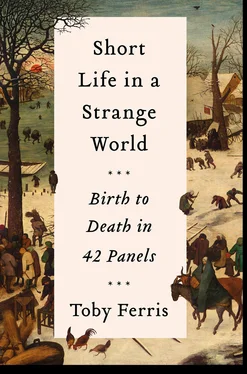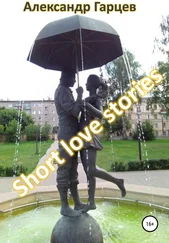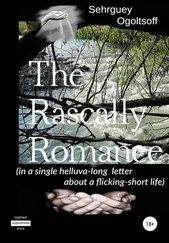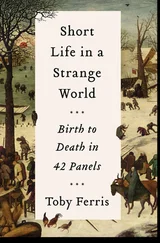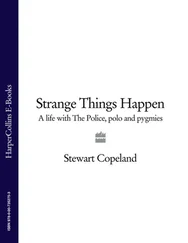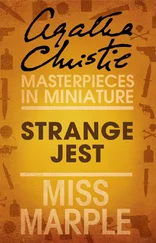Bruegel understood. Quantified objects are easier to handle. They are a necessary simplification. Just as mathematics does not represent some underlying truth of the cosmos, but is a simplification of it, its noise and bustle and impurity reduced to clean lines, or just as a Wright Flyer or a Fairey Swordfish is a simplification of a kestrel and thus, like mathematics, a new thing of its own, so too my spreadsheet is a manageable representation of an unimaginable complexity: the Bruegel panels, their endlessly interacting content, and their filigree intersections with the world, and with me.
The labyrinth that Daedalus invented to house the Minotaur was a way of ritualizing, hence managing, monstrous and unnameable desire. And we, too, need a way either to handle or net the creatures of imagination which rear up in the recesses of the night: black certainty of failure, nebulous inadequacy, hints of diminishing power, the ghosts of age, decay and death. And conversely, we need a way to detect whatever fleet and fugitive neutrinos of joy, or curiosity, or bliss, or ecstasy, remain to us, interstitial but real. Rarely, rarely comest thou, spirit of delight, says Shelley. But the next time thou do comest, I’ll have spread my nets. I’ll be ready.
‘Language is a perpetual orphic song,
Which rules with Daedal harmony a throng
Of thoughts and forms, which else senseless and shapeless were.’
Percy Bysshe Shelley, Prometheus Unbound , Act 4: 415–17
On that first viewing of the Icarus , if my notes and my memory are anything to go by, I missed the dead man. At the bottom of the field, in the bushes, barely visible, there is the top of the bald or balding head of a dead man. An old man. A corpse. Icarus may have been escaping, on a mad escapade; this dead man was never so fleet of foot.
Perhaps it is proverbial (there are old Dutch proverbs about dead men and ploughs). Perhaps it is cryptic, a trace element of something strange. Bruegel liked to encode his paintings. It takes a moment to find Icarus, for one thing, and once you have him you can read all of Ovid in the canvas, near-enough. So here is a fragment of information that might be unspooled.
A banal fragment. Death lies concealed in everything, we all know that. There is no project conceived, just as there is no human or indeed mammalian or vertebrate or eukaryotic child conceived or split off, that does not contain the miniature story of its own end. But containment works two ways: that which is contained is also isolated. Bruegel has trapped this little death demon in his painting, and can then, for a spell, walk away from it. Think of him now, the painting done (even if this is not his painting), a youngish, moderately famous man, walking around in the sunlight somewhere, in Antwerp or Brussels, greeting his neighbours, clearing the smell of oils and turpentine from his nostrils, catching some early spring, perhaps, watching the ships spread economical sail with their cargoes of pepper and worked cloth for Lübeck or Cadiz, his spirits buoyant on the soft airs. For a while yet.
I never dared much, nor aspired to dare. I never risked much. There is very little risk in these projects, certainly. There is only a long slow gliding descent through the museums of Europe and North America, safe in international space: hotel, station, airport, museum. I expect no exhilaration, and no escape to speak of, because for all that motion in air is a form of freedom, at some point you will land again, and one rocky shore is much like another.
The world has its systems and those systems are your freedom. You cannot escape them. Go where you will, do whatever you do, you can only step from one path to the next, one script to another. Not only is there nothing new under the sun: it has all been commoditized for your convenience. Icarus, at the dawn of the historical world, assumed that up there somewhere transformation would be available. His world is Ovidian, after all, and at any point he might sprout branches, scales, talons, tusks, the whole calculus of his trajectory might alter. His father knew otherwise. But his father also knew that although one rocky shore, one Aegean tyranny, is much like another, there are, even so, gradations. Fine gradations of freedom. We are not all equally free, and we are not all equally bound. Some scripts are better than others. Marginally.
I clamber about over my spreadsheet these days much as Dan clambered over his factory roof. With less jeopardy, perhaps, but you can always fall through where you least expect. We do not approach death as from a distance, down a perspective avenue: we walk about on top of it, constantly, our feet touching the feet of the unremembered traces of ourselves which will one day replace us.
As a young teenager I, like Dan – only not like Dan, never with that much gaiety and abandon – climbed over the roofs of disused factories. Growing up, I lived near a concrete works in partial desuetude. These were factories that in their heyday had spun concrete lamp posts for the municipalities of England. But a concrete lamp post was, by the 1980s, a costly item, durable, but expensive. Steel was the thing now. Aluminium. So the factory was running down to nothing. In a couple of years the site would be a housing estate; for now the old concrete posts were left lying around overgrown by brambles, or half-buried like amphorae in Rome.
My brother and I roamed pretty freely over the site. It had its dangers but this was the 1980s, the last days of the wild youth of the world, in this corner of it anyway, and no one cared. On one occasion I slithered merrily on my arse down a sloping roof of corrugated fibreglass, and down the ziggurat of water tanks and drainpipes and packing cases at the corner of the building which had served as our ladder up, and then turned to watch my brother follow me. He descended with ashen care.
My brother was less fearful than me, by and large, so when he finally got down I made him explain: he had watched me go, and had seen how the roof had bowed and sagged under my weight. It had looked certain to him, he said, that I would plummet through it, on to the disused workbenches and ironmongery and cement floor many metres below.
Perhaps the roof was not as fragile as all that. Perhaps I did not come close to death that day. Perhaps some of the other structures I climbed on – water towers, stacked concrete pontoons, assorted roofs – were more perilous. I did in fact fall once or twice, once from some pontoons, once from the high ceiling of a building I was abseiling into down a steel wire; but I always just got up and patted myself down. On I plodded, through an ordinary life, past this individual I briefly met called Dan, and on from that. Until that day I stood in a room of the Beaux-Arts in Brussels, looking at the Landscape with the Fall of Icarus .

Brussels (8.284%)
‘The more things happen to you the more you can’t Tell or remember even what they were.’
William Empson, ‘Let It Go’
Two days after my encounter with the Icarus , I am back in Brussels and back in the museum, this time with my friend Steve Barley, who has finally arrived from Rome. Now I know how to get the chronology right, ascending to the empyrean of Bruegel as though by a winding stair or a twisting thermal. Thus we eddy from Robert Campin to Van der Weyden to Bosch to Joachim Patinir to Herri met de Bles. And so on and up.
We enter the corner room and I make a rapid audit, reminding myself. The right side of the room as you enter is Elder Bruegel; the left side is Younger Brueghel. I am here for the Elder Bruegel. Elder Bruegel is the great Bruegel. I ignore the Younger and settle to the business of scrutinizing Bruegel.
Читать дальше
